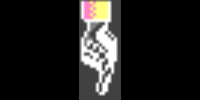Yugoslavia was inequally developed: Slovenia and
Croatia
produced almost a half of national GNP with less than a third of population. But
most of the resources were in the South and Central regions of Yugoslavia. Also,
most of the large industrial efforts depended on cooperation between different
factories in various republics: like Yugo cars that sold in the U.S. were assembled
in Serbia from parts produced in Slovenia, Croatia, Serbia and Bosnia; and
Yugoslav Army tanks were assembled in Croatia, but the high-quality steel for
them was made in Slovenia. After Tito's death in 1980, political leaderships in all
republics started to juggle for the ultimate national power - all of them secretly
pushed some their favorite guy to be the Tito in place of Tito.
When it proved constitutionally difficult to do this
through regular political channels, politicians choosed new paths. One of the
paths was shifting the ideological premises of their political platforms. Yugoslav
politics was rooted in violent anti-nationalism, which Tito endowed in the "brotherhood and unity" slogan. Suddenly, with the
economy in shambles (foreign banks cut-off generous loan giving as cold war was
nearing its end and Yugoslavia was quickly loosing its geostrategic appeal) their
support was shrinking, and they decided to play a
"nationalist card", shrewdly counting on paradox populist response, which
truely happened. The second stage of the civil war was a trade war: politicians of
one republic would start imposing tariffs on products from other republc, all ban
imports, or exports or trade altogether, as Serbia did in 1988 with Slovenia. More
moderate version of trade war was a "spontaneous consumer boycott" of products
from another republic.
Meanwhile a fierce, though hidden from the eyes of the
"international community", intelligence war was sweeping the rank and file of the
exquisite variety of Yugoslav secret and security services:...
... . and it seems, now, in hindsight, that I was a part of it.





